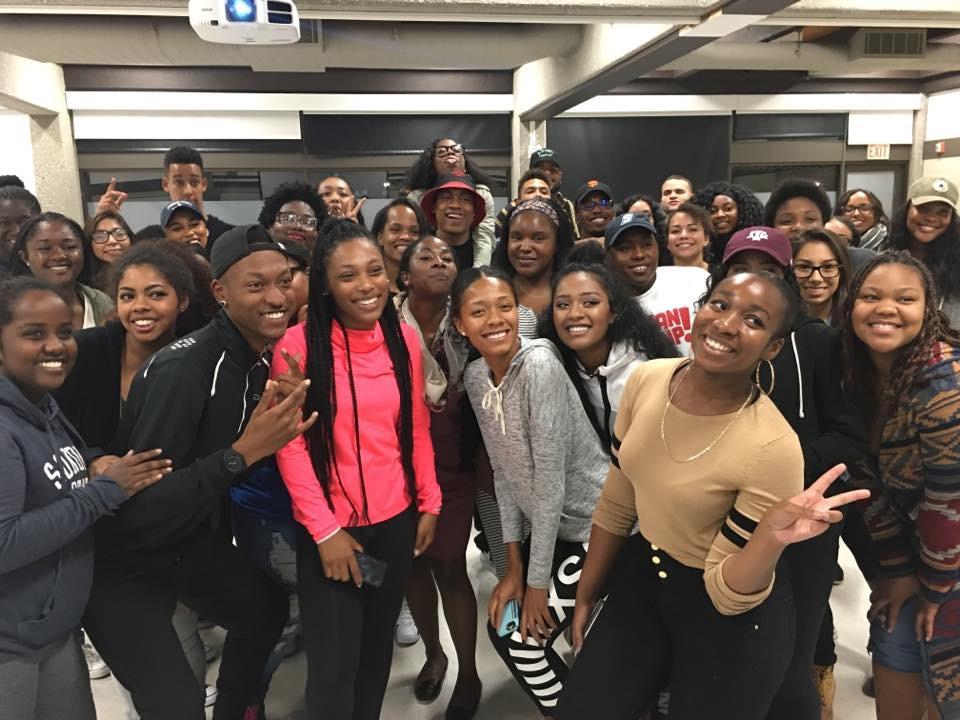Sonoma State University’s Black Student Union is working with Counseling and Psychological Services, better known as CAPS, to hire more counselors of color, one of many goals proposed in the union’s list of demands.
This list was made during the fall 2016 semester to promote diversity and support black students at Sonoma State.
The staff at CAPS currently consists of five psychologists and one post-doctoral fellow. Of these six staff members, two psychologists, Rociel Martinez and Isabel Avila, identify as women of color. None of these staff members are bilingual, though some CAPS counselors identify as LGBTQ.
Aareona Miles, the union’s financial director and a fourth-year criminal justice major, said it took about a year for CAPS to post a job search for counselors of color.
“As a black person, many people cannot relate to how we feel,” Miles said.
Miana Coleman, a third-year art studio major with an emphasis in painting, is the president of the Black Student Union.
Coleman said many students participated in a phone call-in protest in hopes of getting a response from Sonoma State President Judy K. Sakaki about the list of demands.
“[Sonoma State’s administration] called our demands ‘requests.’ It seemed like they weren’t too happy about it,” Coleman said when asked about administration’s response to the demands.
Gregory Thomas, the Black Student Union membership coordinator, said “it would be hypocritical” for administration to stress the importance of diversity without supporting the union’s demands.
“For black students, one of the biggest issues has to do with our actual identity: being a black person in America,” Thomas said. “If I were to talk to a white counselor, there would be certain experiences that they wouldn’t understand. Maybe they would have a hard time empathizing simply because they’ve never experienced it.”
Thomas, Miles and Coleman all said they know former Sonoma State students who have transferred due to lack of diversity and racial issues on campus.
Laura Williams, a California-licensed psychologist and the director of CAPS, is working on diversifying the organization’s staff.
Williams said this process has been in the works for years prior to the Black Student Union’s demands.
“Everything we do, from our hiring and interview process to staff training and development, we focus very much on multicultural issues,” Williams said. “Social justice is a passion of every single person that works here.”
CAPS has posted two job listings for part-time work, seeking “a post-doctorate or licensed therapist that has a specialization in working with African-American or black-identified students.”
“Historically, it’s been really hard for us to attract a really diverse pool,” Williams said.
According to Williams, multiple factors make it difficult to attract diversity in the department. She said Sonoma State’s salaries are not competitive enough compared to nearby universities and jobs, and that Sonoma County itself is “not as diverse as other areas in California.”
CAPS will not have access to the pool of applicants for a few more weeks, but Williams said she remains hopeful that they will find someone for the task at hand.
Over the summer, the department posted a wider job listing to recruit multicultural and bilingual counselors, but did not receive a large enough applicant pool to hire anyone.
“I’m hopeful but not assured that this will give us the pool we want to have,” says Williams.
According to Williams, two factors that are affecting CAPS’ goal to diversify are budget and space.
Williams said that even if the department were to find more diverse counselors, it “wouldn’t have the funds or the space.”
CAPS is supported by the $56 mental and health service fee paid by Sonoma State students.
Those who pay this fee are eligible for ten free therapy sessions and unlimited access to any group therapy services provided by CAPS, such as the Women of Color Collective.
This service fee covers CAPS’ budget, which primarily consists of salaries and benefits, as well as operating expenses.
“We just don’t have enough to get everything we want to fully serve students,” Williams said.
Williams acknowledged that students often come to her with concerns about lack of diversity on campus. According to Sonoma State, in fall 2015 49 percent of the student body identified as white, while in fall 2016, about 65 percent of faculty also identified as white. Williams said she encourages patients to get more involved with clubs that promote diversity.
“Being in a community where you’re surrounded by a predominantly white institution is a different feeling,” Miles said. “When you come to a BSU meeting and can be surrounded by people of color, it gives you joy.”
Diversifying the staff at CAPS is only one of the demands that the Black Student Union has set for Sonoma State.
Other demands include creation of a Black Resource Center, scholarships for black students, black-themed housing, and an Africana major and minor.
The Black Student Union meets every Monday at 7 p.m. in the Dry Creek Valley meeting room, and its list of demands can be found at http://www.sonomastatebsu.org/demands/.
The CAPS job listings can be found at http://web.sonoma.edu/aa/fa/prospective/counseling.html.
For more information or for personal concerns, contact CAPS at (707) 664-2153.



































